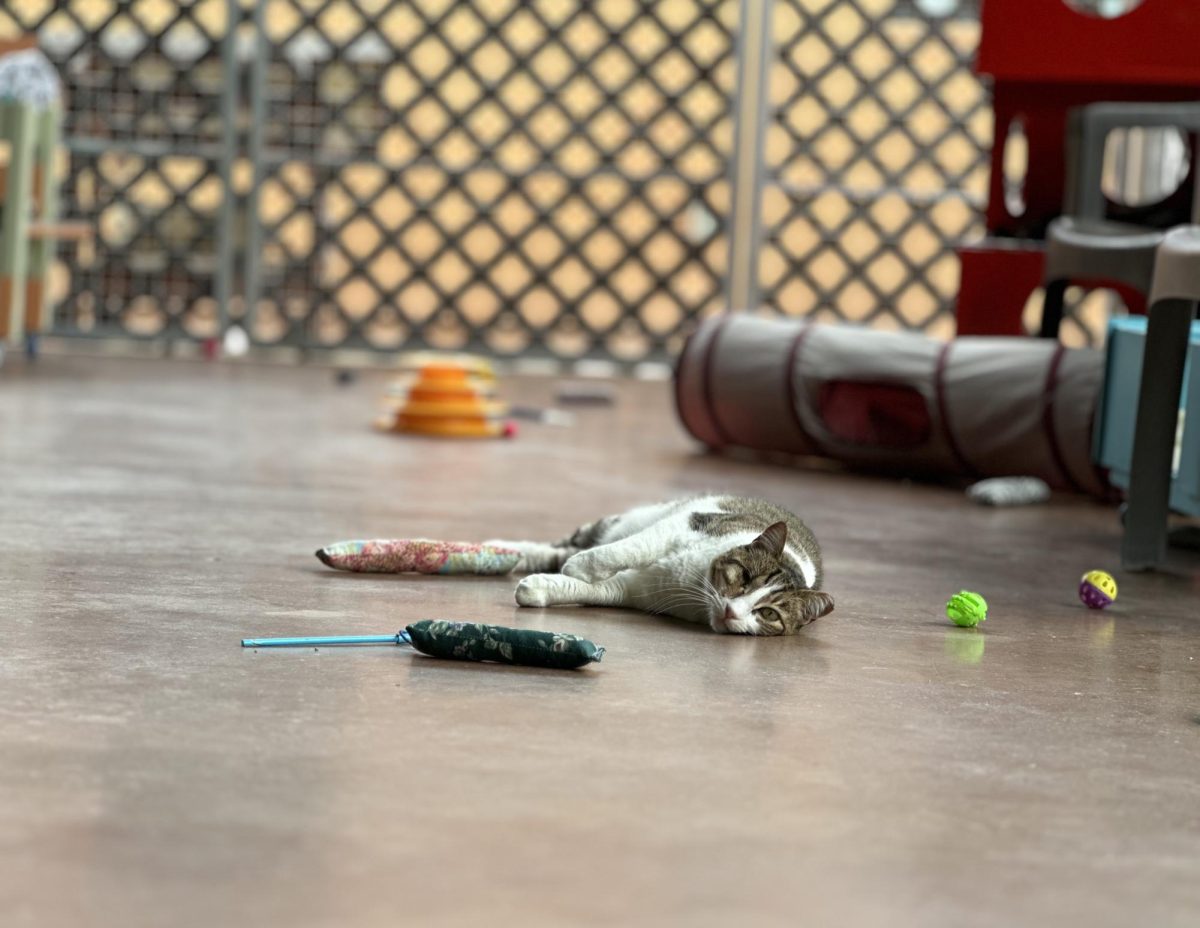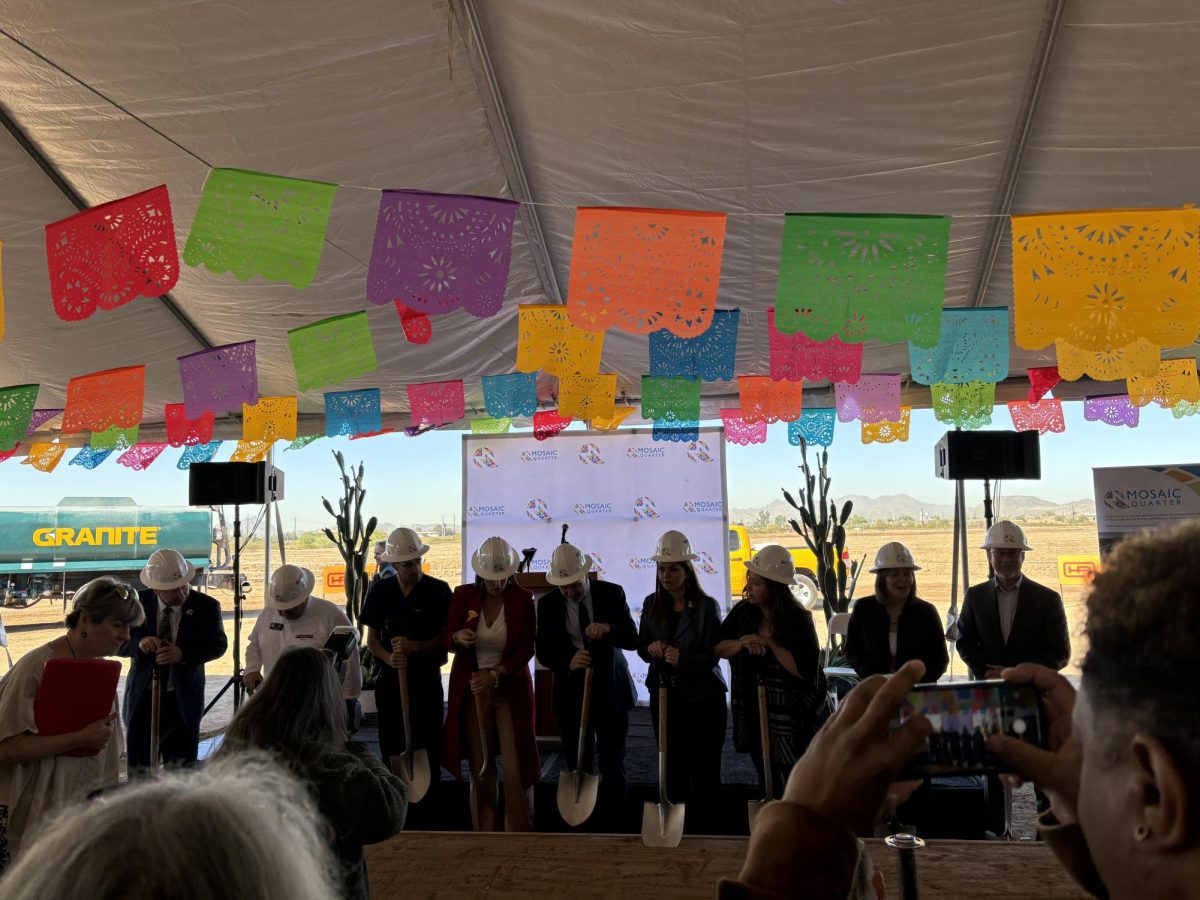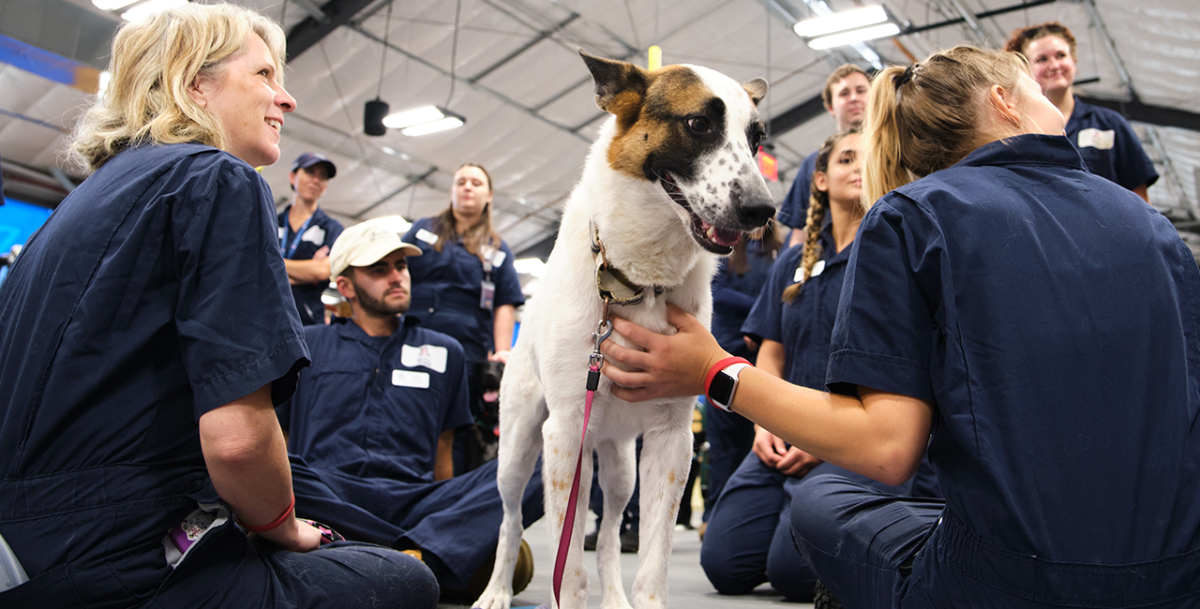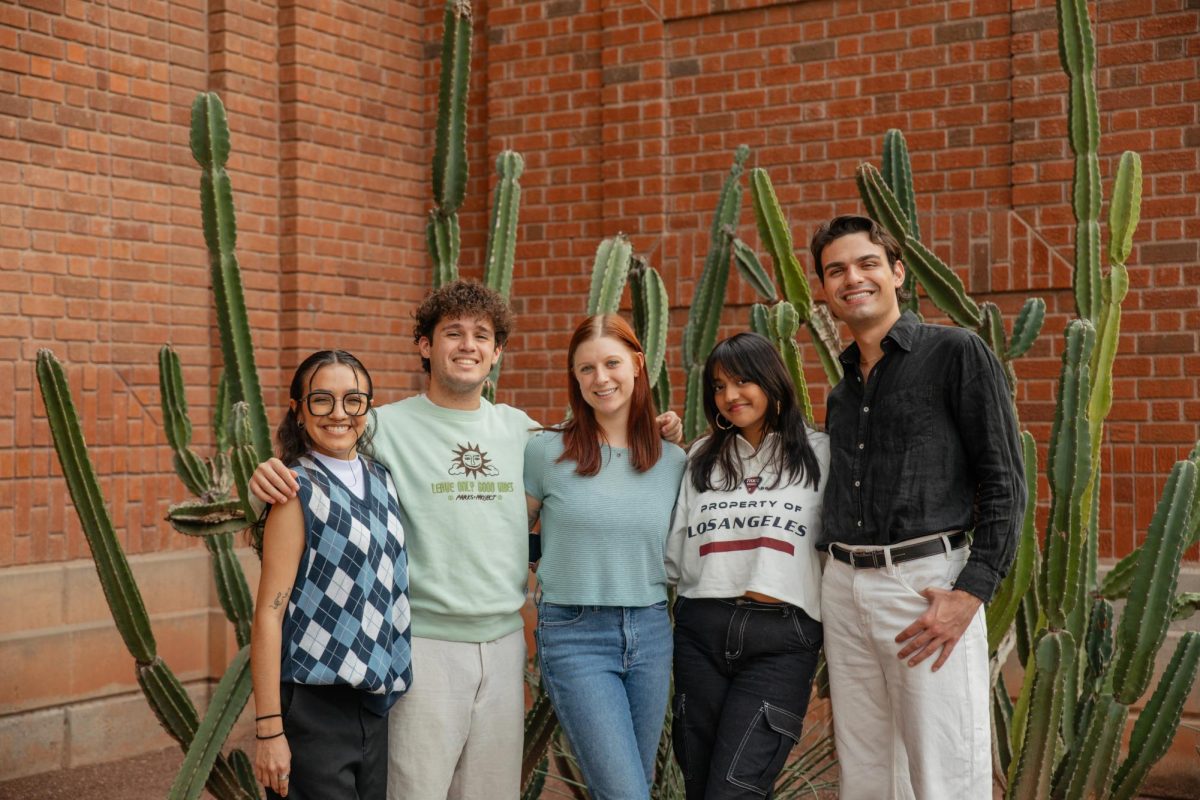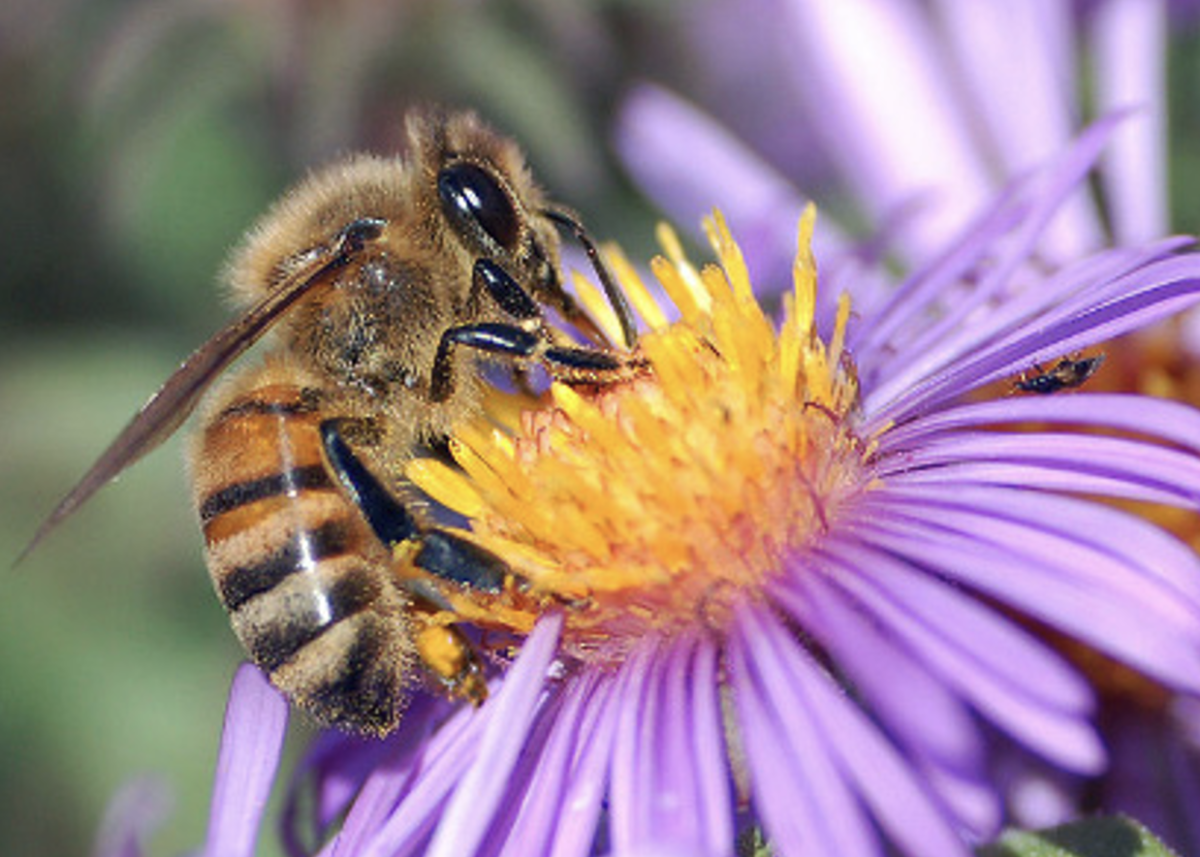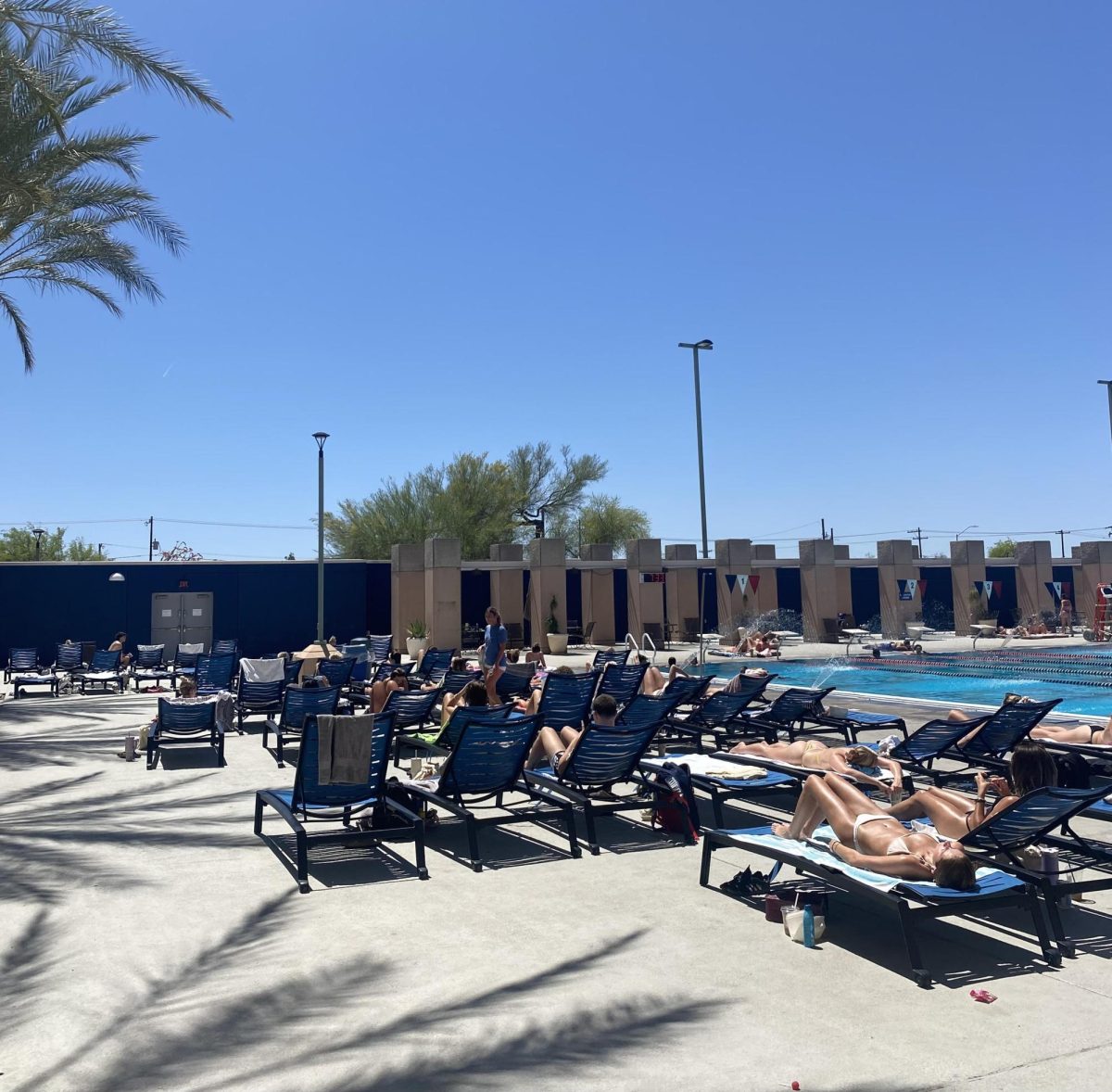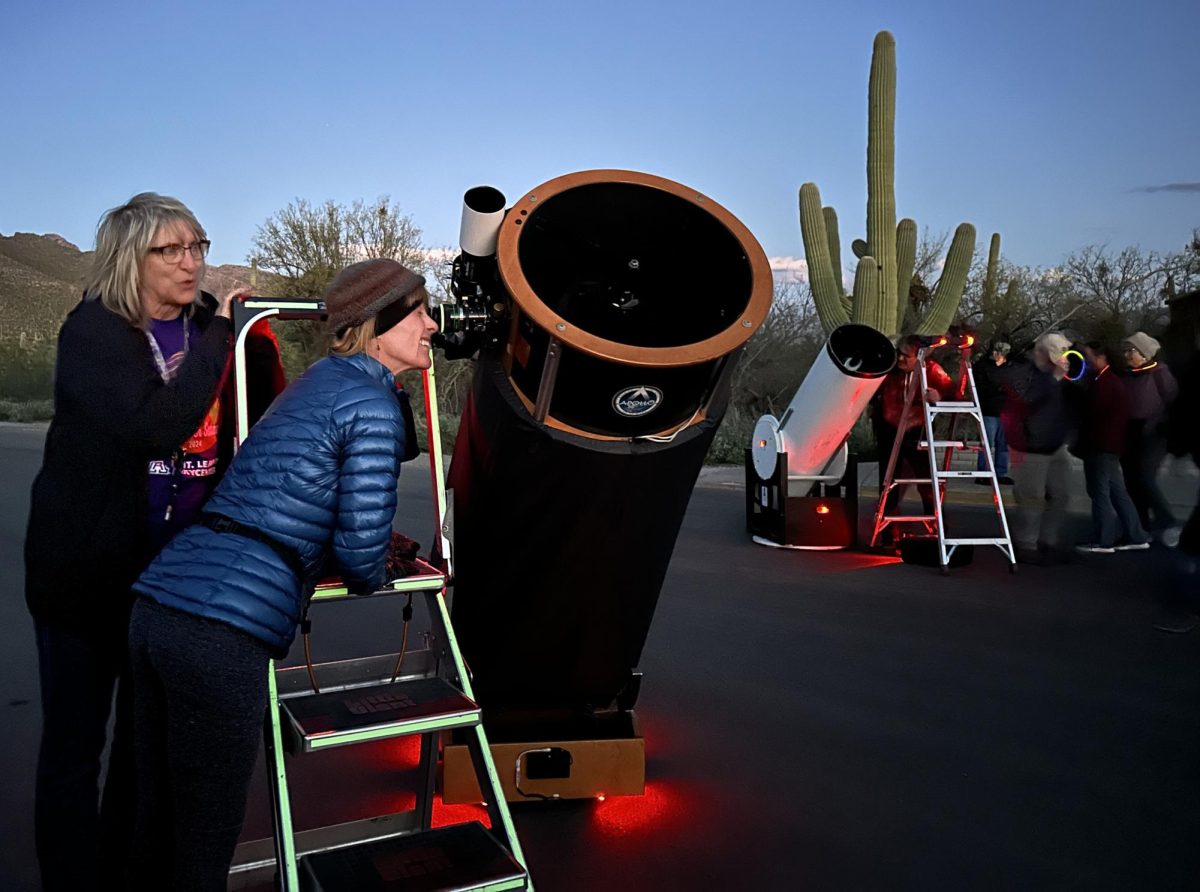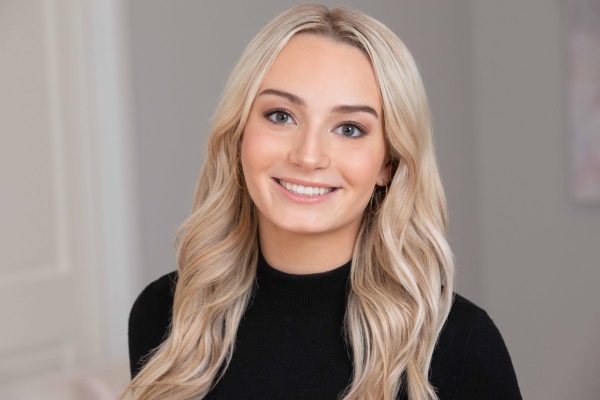Cats roam freely within the feline leukemia room at the Hermitage Cat Shelter, jumping from shelves into soft baskets and blanket-covered cubbies, chasing colorful toys scattered across the floor and embracing one another as they sleep. Intrigued as visitors step through the heavy door, a few cats cautiously prance over.
They purr softly, brushing against the legs of the visitors while sniffing the tips of their shoes and glance upward, hoping for attention.
The Hermitage No-Kill Cat Shelter and Sanctuary in Tucson cares for these cats and urges the public to adopt these ill, yet high-spirited felines.
Feline Leukemia Virus (FeLV) and Feline Immune Deficiency Virus (FIV) are diseases that almost always result in euthanasia at a large majority of cat shelters. However, with no cages and a no-kill philosophy, Hermitage provides some of the most specialized feline medical care in the country.
Located at 5278 E. 21st St., the Hermitage Cat Shelter treats cats with FeLV and FIV. It is listed as the only accredited sanctuary in the state of Arizona, and is one of only 22 in the entire nation to serve as a sanctuary for cats with these common feline diseases, according to the shelter’s website.
FeLV and FIV Specialized Care
The shelter currently houses around 300 cats, said Tiffany Johnson, a certified veterinary technician. Every cat in the shelter is vaccinated against FeLV, which fully protects them from contracting the virus. FeLV can be spread to unvaccinated cats through mutual grooming, sharing water bowls and sharing food bowls. The virus does not last long in the environment, which is why the vaccine is so effective, Johnson said.
But, once contracted, there is no cure.
“We typically tell people it’s like adopting a senior,” Johnson said. “They are probably going to have a shorter lifespan because they have weakened immune systems. Not all of them, but many, will experience illnesses more often than others.”
Although FeLV is not a cancer in cats, it can cause cancer, such as lymphoma, especially in cats that live past the life expectancy for FeLV positive felines, Johnson said. The virus promotes the transformation of normal cells into cancerous cells, and a weakened immune system also makes these cats more susceptible to developing cancer. Once diagnosed, FeLV positive cats have a median survival time of two and a half years.
FIV on the other hand, has no vaccine.
There are FIV cats in just about every room in the shelter, according to Johnson. This virus also weakens the immune system, but can only be spread when an infected cat bites deep into the muscle of another. However, due to their weakened immune systems, these cats usually have their teeth taken out due to medical issues with their mouths. At this point, a FIV positive cat can no longer spread the virus.
“We sometimes call it the un-neutered male disease because they tend to fight over the ladies and other resources and then that’s how it is spread,” Johnson said.
Although Hermitage is cage-free and allows cats to roam freely, the shelter also has what are called satellite rooms – separate rooms from the general population, or “gen pop,” she added.
Hermitage has an FeLV room, where all FeLV positive cats live together.

The FeLV satellite room for FeLV positive cats at the Hermitage No-Kill Cat Shelter and Sanctuary in Tucson Ariz. on April 18, 2024. Visitors must sanitize their hands when they enter and exit the room. (Photograph by Laine Kowalski)
But the division isn’t always absolute.
In one case, Johnson said, the shelter had a senior leukemia cat who contracted the virus later in life, allowing for a longer life expectancy compared to cats born with it. It was bonded with a non-leukemia cat, meaning separating them would cause the cats distress. So, the shelter allowed the non-leukemia cat to live in the FeLV room, too. Unfortunately, the FeLV positive cat passed away at 19 last year, leaving behind the other.
“We didn’t want to take him away from everything he knew when his partner passed, so we test him every year and he remains negative,” Johnson said. “That’s just how we know, other than the fact that people have blended families, that the vaccine works.”
Other Specialized Medical Care
Other rooms at the shelter include a Dietary and Diabetic Darlings room for cats that are diabetic or need a special diet due to urinary issues or because they are a little overweight. There is also an allergy room where cats receive a hypo-allergenic diet to alleviate some of those problems in conjecture with medications.
And there is a Mature Meowers room for senior cats and cats who prefer to move at a slower pace. Older cats in this room usually have problems with their kidneys or teeth. Younger cats can end up in this room when they have problems with their mouths and need to eat more slowly, which is hard to do in gen pop with many other cats vying for the same food.
Johnson works in the medical facility at the front of the shelter. The facility includes operation rooms and a main surgery room, along with cages to house new cats, cats that are being prepped for surgery or recovering from surgery or contagious cats.
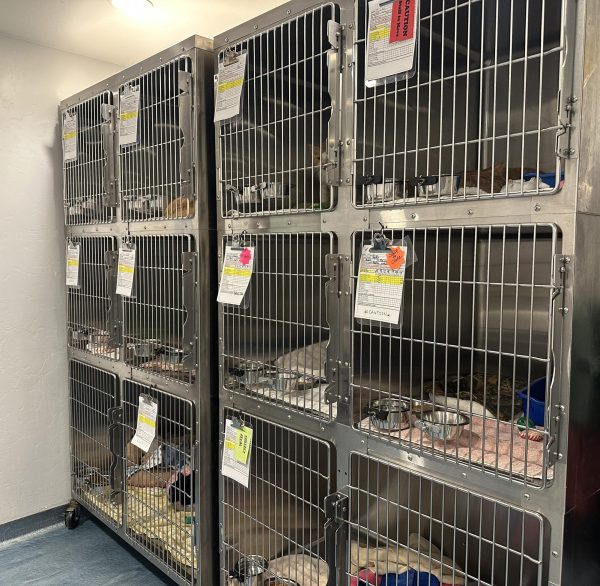
Cages in the medical facility that houses new or sick cats at the Hermitage Cat Shelter in Tucson Ariz. on April 18, 2024. These cages are only temporary until the cats are healthy and can be slowly integrated into the cage-free environment. (Photograph by Laine Kowalski)
“Everybody is segregated until we know that they are as physically sound as they can be and that they don’t have contagions that they are going to spread to the other cats,” Johnson said.
The shelter not only treats local cats, but cats from all over the country, mainly by pulling from high-kill shelters. There is an intake waiting list of nine months to a year.
“We also take cats from Puerto Rico, and those cats usually come in pretty rough,” Johnson said. “We just received one that looks like he has cancer, so we will have to do some diagnostics to confirm that.”
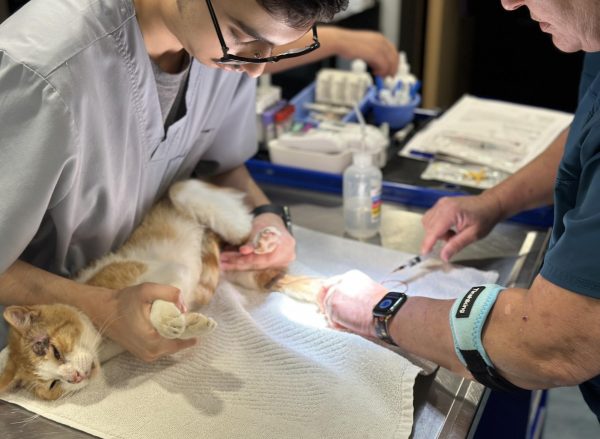
Tiffany Johnson drawing blood from a cat on an examination table at the Hermitage No-Kill Cat Shelter and Sanctuary in Tucson Ariz. on April 18, 2024. This cat was taken in recently from Puerto Rico in rough condition and is presumed to have cancer, but further testing will be conducted to confirm this diagnosis. (Photograph by Laine Kowalski)
She added that sometimes euthanasia is the right thing to do, and the right thing to do is typically the hardest.
“If we have a cat that is suffering, we absolutely give them peace by letting them go,” she said. “We can consider that to be a gift. If their quality of life is going to be so affected by whatever ails them, we are not going to allow that to continue.”
Adopting from Hermitage
The shelter does its best to educate the public on viruses like FeLV and FIV.
They want people to know that it is possible to have a mixed household with FeLV positive cats, FIV cats and non-infected cats. As long as potential adopters have the financial means to take care of the cat and pay for vet expenses, a mixed household is completely manageable.
Hermitage has a sponsor who subsidizes FeLV adoptions, allowing leukemia cats and kittens to be adopted for only $25. Since adopters might have to spend money on medical expenses later in an infected cat’s life, the adoption fee is designed to urge the public to adopt those cats.

A cat sitting on top of the adoptions desk at the Hermitage Cat Shelter in Tucson Ariz. on April 18, 2024. Adoption applications are available on their website. (Photograph by Laine Kowalski)
Holly Simon, the adoption coordinator, works with Johnson to observe the cats interacting to determine any negative behaviors, further medical issues and how well they have adjusted. Once a cat is fully transitioned, it becomes available for adoption.
Potential adopters must fill out an application, and Simon conducts a background check to ensure a stable environment for a cat before someone can adopt.
“I’m a firm believer that the cat picks the person just as much as the person picks the cat,” Simon said.
Tiffany Mabery and her husband, who have visited the shelter weekly for the past few months, were recently approved for adoption.
“I love it here,” Mabery said. “I love that these cats have a good life. Once they get here and they are acclimated to different people, different cats and this environment, it’s just as stress free as it can be for cats who have gone through traumatic experiences.”
How to get involved
Right now, kitten season is ramping up, and there are many ways to get involved, Simon said. With the specialized needs of the cats the shelter cares for, community support is essential, she said, and they get a lot of it.
“This building is amazing, so what we want is to tell people we are here, have fun events to bring them in and then have them see this building because we are not like any other shelter in the area,” Simon said.
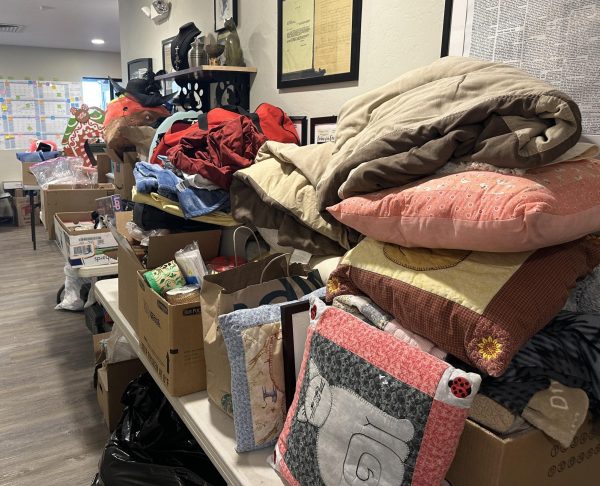
Pile of collected items for a yard sale to raise money at the Hermitage Cat Shelter located in Tucson, Ariz. on April 18, 2024. All payments go directly towards helping the cats. (Photograph by Laine Kowalski)
The Hermitage website accepts donations and volunteering is always welcomed. The shelter has around 17 staff members, but over 150 volunteers, Simon said.
“I am hooked on this place,” said Darlene Rudd, a volunteer who helps at the shelter Tuesdays through Fridays. “It’s just so fascinating. It’s never the same twice. It’s just constantly entertaining, interesting, and can be heartbreaking on occasion.”
She said when she gets another cat, she will be adopting from Hermitage.
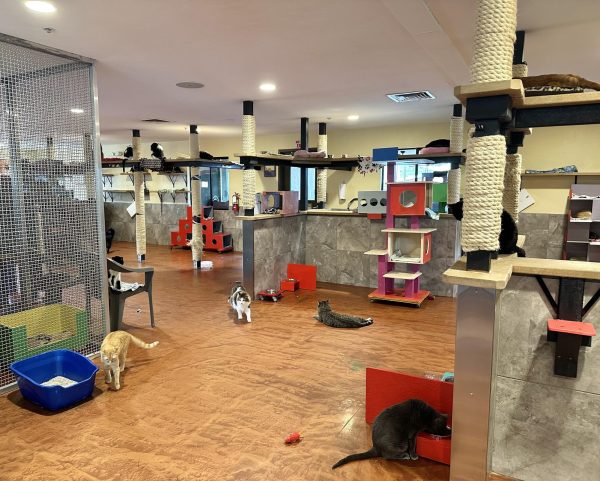
Cats roaming around the cage-free gen pop section of the Hermitage Cat Shelter in Tucson Ariz. on Feb. 10, 2024. Cats are provided with shelves for climbing, scratching posts, cubbies and toys. (Photograph by Laine Kowalski)
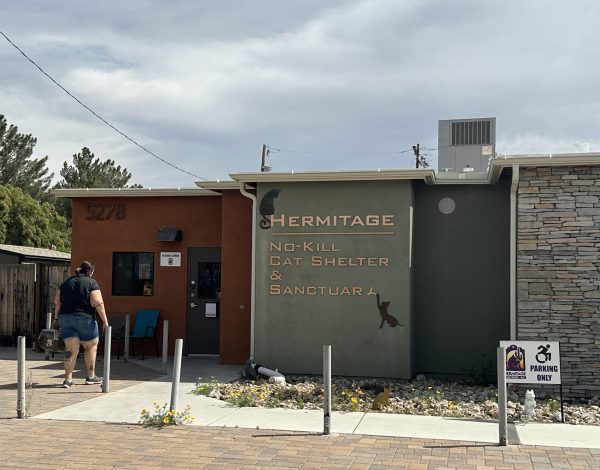
Woman walks holding a cat crate into the intake center at the Hermitage No-Kill Cat Shelter and Sanctuary in Tucson, Ariz. on April 18, 2024. Once a cat is finally chosen from the waiting list to be taken in, medical will make sure they are healthy and get the cat up to date on vaccinations. (Photograph by Laine Kowalski)



